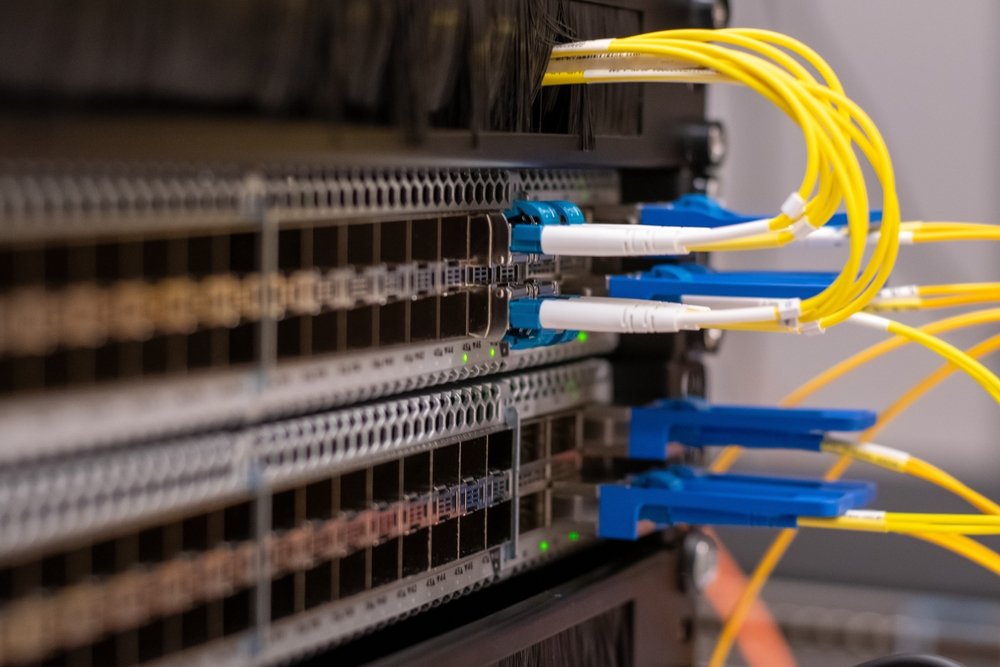science-technology

July 08,2025 • 5 min read
Boost Network Performance with Cisco Module Solutions

In the rapidly evolving world of IT infrastructure, network performance and scalability are crucial for seamless operations. Cisco, a global leader in networking and communication technology, offers a wide array of modular solutions designed to empower businesses with flexible and powerful connectivity options. Cisco Modules are essential components that allow network administrators to tailor devices such as routers, switches, and firewalls to specific needs — whether it’s increasing bandwidth, integrating storage devices, or expanding LAN/WAN capabilities.
Cisco Modules are more than just expansion components; they are the backbone of scalable and efficient IT hardware environments. Whether you’re managing a data center, enterprise network, or hybrid cloud infrastructure, understanding how these modules work and what they offer is key to optimizing your computer hardware performance.
What is a Cisco Module?
A Cisco Module is a plug-in component designed to extend the functionality of Cisco networking equipment. These modules provide a cost-effective way to scale IT infrastructure without replacing entire devices. Depending on the type, they may offer additional interfaces for LAN/WAN connectivity, enhanced processing, added security functions, or storage device integration.
These modular capabilities allow IT teams to create highly customized networking solutions that fit specific business needs, from high-speed internet access to secure inter-office communication.
The Role of Cisco Modules in Modern IT Hardware
Modern networks require agility, speed, and reliability. Cisco Modules contribute significantly to each of these requirements by transforming basic hardware into intelligent, adaptable devices. Here’s how Cisco Modules fit into the broader IT hardware landscape:
-
Scalability: Businesses can scale their operations without major overhauls by adding modules as their needs grow.
-
Flexibility: Different modules allow for tailored configurations depending on whether the focus is on LAN, WAN, wireless, or security.
-
Cost-Effectiveness: Instead of replacing entire routers or switches, modules offer an economical upgrade path.
-
Compatibility: Cisco Modules integrate seamlessly with various storage devices and computer hardware systems.
From small business offices to global enterprise networks, Cisco Modules provide the flexibility and performance demanded by modern IT operations.
Types of Cisco Modules
Cisco offers a variety of modules tailored to different network roles and hardware requirements. Let’s explore the most common types of modules and their use cases:
1. LAN/WAN Modules
One of the most widely used types of Cisco Module, LAN/WAN modules expand the number and type of network connections a Cisco device can handle. These modules support Ethernet, T1/E1, DSL, and fiber connections — enabling IT hardware to connect to internal networks or the internet with higher efficiency.
In environments where bandwidth and speed are mission-critical, such as video conferencing centers or high-volume transaction systems, LAN/WAN modules ensure uninterrupted performance.
SEO Keyword Use Example: Cisco LAN/WAN Modules improve network throughput and reliability, supporting mission-critical IT hardware and computer hardware deployments.
2. Storage Modules
For businesses dealing with large volumes of data, storage integration is vital. Cisco storage modules are designed to integrate external storage devices or provide local storage expansion in network appliances. These modules are commonly used in data centers and enterprise networks where managing data flow is a top priority.
When combined with Cisco UCS (Unified Computing System), storage modules facilitate unified management of servers, network interfaces, and storage — creating a more efficient data ecosystem.
SEO Keyword Use Example: With Cisco Modules for storage integration, IT teams can streamline data flow between storage devices and computer hardware infrastructure.
3. Service Modules (Security, Voice, Wireless)
Cisco’s service modules are engineered to deliver specialized functions such as:
-
Security: Firewall, intrusion prevention, and content filtering
-
Voice: VoIP functionality for unified communication systems
-
Wireless: Integration with access points and wireless controllers
These modules enable additional services without needing separate devices. For example, a Cisco ISR router with a security module can function as both a router and a firewall, reducing complexity and saving rack space in the IT hardware layout.
4. Network Interface Modules (NIMs)
NIMs provide additional connectivity options like Ethernet ports, fiber optics, or serial interfaces. These are ideal for organizations that require diverse connections in distributed network architectures.
Businesses operating in multiple locations or with remote teams often deploy NIMs to ensure reliable, secure, and fast data transmission between all endpoints.
Ideal Use Cases for Cisco Modules
Cisco Modules are suitable for a wide variety of industry environments:
-
Enterprise IT Infrastructure: Large corporations benefit from scalable LAN/WAN modules and storage integration.
-
Education: Voice and wireless modules support digital classrooms and campus-wide communication.
-
Healthcare: Secure and high-speed networking enables fast data transfers between departments and facilities.
-
Retail: With security and WAN modules, stores can maintain secure transactions and efficient inventory systems.
Regardless of your industry, Cisco Modules adapt to your computer hardware and IT hardware ecosystem to deliver top-tier performance.
Conclusion
In today’s fast-paced digital landscape, businesses need scalable, reliable, and secure networks. Cisco Modules offer a flexible and cost-effective way to meet those needs. From improving LAN/WAN connections to integrating high-performance storage devices, these modules enhance your overall computer hardware setup.
By leveraging Cisco Modules in your IT hardware infrastructure, you position your organization for sustained performance, improved security, and operational efficiency. Whether you're expanding a small business network or managing a global enterprise system, Cisco Modules provide the adaptability and power needed to stay ahead.
Berry Coleman Details
User Profile
- Full name
- Berry Coleman
- Email address
- berry.coleman.cod@gmail.com
- Join Date
- 2025-07-08
- State
- City
- Pincode
- Address
- Follow us on Facebook
- Follow us on Twitter
- Website Name
- Bio